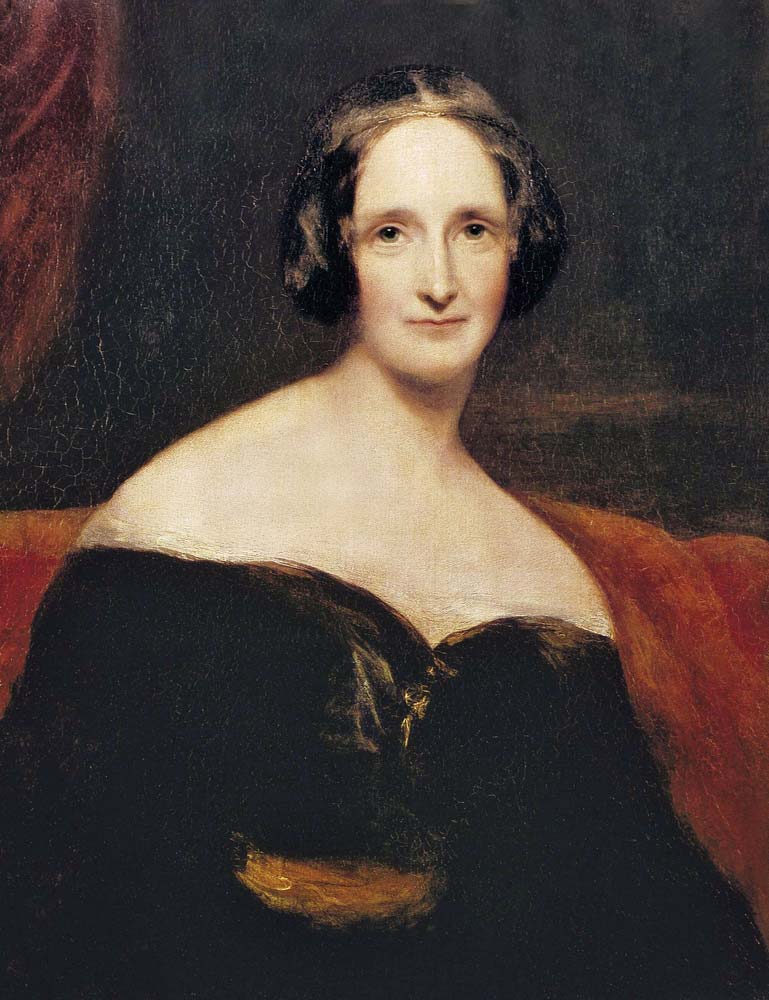
We need to talk about modernity. But to do that I have to tell you a story of a young 19th century girl.
Back in May of 1816, a small group of friends got together in Geneva Switzerland where they were spending the summer. Due to the “incessant rain” of what had become “that wet, ungenial summer” that June turned into, this small group of friends got together and over the course of three days they turned to reading of ghost stories as a way to turn the dull, raining doldrums into something more thrilling. These friends, Percy Bysshe Shelley, Lord Byron, John William Polidori, and Mary Godwin set to one upping each other with a writing contest. Out of this meeting came the first published vampire story, “The Vampyre,” written by Polidori, “A Fragment,” another vampire story this one by Lord Byron, and finally “Frankenstein; or, The Modern Prometheus” by Mary Godwin or, as more popularly known as Mary Shelley.
Mary Shelley was a few months away from her 19th birthday when she wrote “Frankenstein.” It is an impressive work of romantic literature. But simply judging Mary Shelley based on this one work would really be selling her short. I took a moment to read through some of her diary entries looking for more information about that summer of 1816 and found an entry for all the books she read in 1815. She had read 97 books in 1815 starting when she was 17 and transitioning to 18 years of age. If it was just a list of 97 books that is a pretty impressive feat, but then I realized that a number of the books were multi-volume books and this was not a list of easy books either. This was a list of 97 very impressive books that this young girl had read. (see list below)
Now back to discussing modernity. We moderns have accomplished a great deal. We have long, reasonably healthy lives. We have every modern convenance and means to provide us with a tremendous amount of leisure time. Despite this, I think any one of us would be hard pressed to read 97 books in a year especially of the literary quality as did the 18 year old Mary Shelley. Sitting around reading German ghost stories and discussing the mysteries of life with a group of friends is just not something a modern would do. This is too bad. Perhaps the achievements of modernity come at too great a price.
Mary Shelley’s 1815 Reading List
Posthumous Works. 3 vols.
Sorrows of Werter.
Don Roderick. By Southey.
Gibbon’s Decline and Fall 12 vols.
Gibbon’s Life and Letters. 1st Edition. 2 vols.
Lara.
New Arabian Knights. 3 vols.
Corinna.
Fall of the Jesuits.
Rinaldo Rinaldini.
Fontenelle’s Plurality of Worlds.
Hermsprong.
Le Diable Boiteux.
Man as he is.
Rokeby.
Ovid’s Metamorphoses in Latin.
Wordsworth’s Poems.
Spenser’s Fairy Queen.
Life of the Phillips.
Fox’s History of James II.
The Reflector.
Fleetwood.
Wieland.
Don Carlos.
Peter Wilkins.
Rousseau’s Confessions.
Leonora: a Poem.
Emile.
Milton’s Paradise Lost.
Life of Lady Hamilton.
De l’Allemagne. By Madame de Staël.
Three vols, of Barruet.
Caliph Vathek.
Nouvelle Heloise.
Kotzebue’s Account of his Banishment to Siberia.
Waverley.
Clarissa Harlowe.
Robertson’s History of America.
Virgil.
Tale of a Tub.
Milton’s Speech on Unlicensed Printing.
Curse of Kehama.
Madoc.
La Bible Expliquée.
Lives of Abelard and Heloise.
The New Testament.
Coleridge’s Poems.
[Pg 124]First vol. of Système de la Nature.
Castle of Indolence.
Chatterton’s Poems.
Paradise Regained.
Don Carlos.
Lycidas.
St. Leon.
Shakespeare’s Plays (part of which Shelley read aloud).
Burke’s Account of Civil Society.
Excursion.
Pope’s Homer’s Illiad.
Sallust.
Micromejas.
Life of Chaucer.
Canterbury Tales.
Peruvian Letters.
Voyages round the World.
Plutarch’s Lives.
Two vols, of Gibbon.
Ormond.
Hugh Trevor.
Labaume’s History of the Russian War.
Lewis’s Tales.
Castle of Udolpho.
Guy Mannering.
Charles XII by Voltaire.
Tales of the East.
Pastor Fido.
Orlando Furioso.
Livy’s History.
Seneca’s Works.
Tasso’s Gerusalemme Liberata.
Tasso’s Aminta.
Two vols. of Plutarch in Italian.
Some of the Plays of Euripides.
Seneca’s Tragedies.
Reveries of Rousseau.
Hesoid.
Novum Organum.
Alfieri’s Tragedies.
Theocritus.
Ossian.
Herodotus.
Thucydides.
Homer.
Locke on the Human Understanding.
Conspiration de Rienzi.
History of Arianism.
Ockley’s History of the Saracens.
Madame de Staël sur la Literature.